
FACULTY OF COMMUNICATION
Department of Cinema and Digital Media
GEAR 307 | Course Introduction and Application Information
| Course Name |
Contemporary World Cinema
|
|
Code
|
Semester
|
Theory
(hour/week) |
Application/Lab
(hour/week) |
Local Credits
|
ECTS
|
|
GEAR 307
|
Fall/Spring
|
3
|
0
|
3
|
4
|
| Prerequisites |
None
|
|||||
| Course Language |
English
|
|||||
| Course Type |
Service Course
|
|||||
| Course Level |
First Cycle
|
|||||
| Mode of Delivery | - | |||||
| Teaching Methods and Techniques of the Course | DiscussionQ&ALecture / Presentation | |||||
| Course Coordinator | - | |||||
| Course Lecturer(s) | ||||||
| Assistant(s) | - | |||||
| Course Objectives | This course aims to introduce students to contemporary world cinema. It consists of film history, key concepts in film studies and world cinema research, and questions of representation in relation to issues of gender, sexuality, race and ethnicity in a global context. |
| Learning Outcomes |
The students who succeeded in this course;
|
| Course Description | This course combines viewing of films followed by class discussion. Each week, we will summarize key points and arguments made by a film scholar on a particular topic and watch a film that relates closely to the text. This course combines viewing of films followed by class discussion. Each week, we will summarize key points and arguments made by a film scholar on a particular topic and watch a film that relates closely to the text. |
|
|
Core Courses | |
| Major Area Courses | ||
| Supportive Courses | ||
| Media and Management Skills Courses | ||
| Transferable Skill Courses |
WEEKLY SUBJECTS AND RELATED PREPARATION STUDIES
| Week | Subjects | Related Preparation |
| 1 | Introduction | |
| 2 | Middle Eastern Cinema: Iran Ten, Abbas Kiarostami, 2002 (94 min) | Moore, L. C. (2005) “Women in a Widening Frame: (Cross-) Cultural Projection, Spectatorship and Iranian Cinema” Camera Obscura: Feminism, Culture and Media Studies, 20(2), pp. 1-33. |
| 3 | Eastern European Cinema: Romania Occident, Cristian Mungiu, 2002 (102 min) | Adriana Cordali Gradea (2018) “The rhetoric of leaving, or the mirage of the fetishized West in Cristian Mungiu’s Occident” Journal of European Studies. Volume 48, issue 3-4, page(s): 250-264. Marian Țuțui and Raluca Iacob, “New Romanian Cinema: Geography and Identity” in Edited by Christina Stojanov The New Romanian Cinema. Edinburg University Press. 2021. |
| 4 | Western European Cinema I Caché, Michael Haneke (2005) | Nancy E. Virtue “Memory, Trauma, and the French-Algerian War: Michael Haneke's Caché (2005)” Modern & Contemporary France, 19:3. 2011, pp. 281-296. |
| 5 | Western European Cinema II Head-On, Fatih Akın (2004) | Berna Güneli “Chapter Two: Language Use and Dialogue: Multilingualism in Akın’s Head-On” in Güneli (2011) Challenging European Borders: Fatih Akın’s Filmic Visions of Europe, PhD dissertation, The University of Texas at Austin, pp. 96-126. |
| 6 | Subcontinent Cinema: India Slumdog Millionaire (2008) Danny Boyle | Ana Cristina Mendes (2010) “Showcasing India Unshining: Film Tourism in Danny Boyle’s Slumdog Millionaire” Third Text, 24:4, 471-479. |
| 7 | The Global South: Burkina Faso Under the Moonlight (2004) Appoline Traoré | Lizelle Bisschoff (2010) “Visions of female emancipation: three recent films from West Africa” Journal of African Cinemas, Vol. 2:1, 37-48. |
| 8 | Midterm Exam | |
| 9 | Cinema in Australia and New Zealand The Piano (1993) Jane Campion | Barbara Klinger (2006) “The art film, affect and the female viewer: The Piano revisited” Screen, Volume 47, Issue 1, Spring 2006, Pages 19–41. |
| 10 | Korean New Wave Parasite (2017) Bong Joon-Ho | Schulze, Jonathan (2019) “The Sacred Engine and the Rice Paddy: Globalization, Genre, and Local Space in the Films of Bong Joon-ho” Journal of Popular Film and Television, 47:1, 21-29, pp. 21-29. |
| 11 | Japanese Cinema Shoplifters (2018) Hirokazu Kore-eda | Erlich, Linda C., (2011). “Kore-eda’s Ocean View” Film Criticism, Vol. 35, No. 2/3, pp.127–146. |
| 12 | Latin America: Mexico Roma (2018) Alfonso Cuarón | Sergio de la Mora (2019) “Roma: Reparation versus Exploitation” Film Quarterly 72 (4): 46–53. |
| 13 | Latin America: Brazil Aquarius (2016) Kleber Mendonça Filho | Stephanie Dennison (2018) “Intimacy and cordiality in Kleber Mendonça Filho’s Aquarius” Journal of Iberian and Latin American Studies. 24:3, 329-340. |
| 14 | Course Review | |
| 15 | Course Review | |
| 16 | Final Exam |
| Course Notes/Textbooks | |
| Suggested Readings/Materials |
EVALUATION SYSTEM
| Semester Activities | Number | Weigthing |
| Participation |
1
|
20
|
| Laboratory / Application | ||
| Field Work | ||
| Quizzes / Studio Critiques | ||
| Portfolio | ||
| Homework / Assignments | ||
| Presentation / Jury | ||
| Project | ||
| Seminar / Workshop | ||
| Oral Exams | ||
| Midterm |
1
|
30
|
| Final Exam |
1
|
50
|
| Total |
| Weighting of Semester Activities on the Final Grade |
3
|
100
|
| Weighting of End-of-Semester Activities on the Final Grade | ||
| Total |
ECTS / WORKLOAD TABLE
| Semester Activities | Number | Duration (Hours) | Workload |
|---|---|---|---|
| Theoretical Course Hours (Including exam week: 16 x total hours) |
16
|
3
|
48
|
| Laboratory / Application Hours (Including exam week: '.16.' x total hours) |
16
|
0
|
|
| Study Hours Out of Class |
14
|
2
|
28
|
| Field Work |
0
|
||
| Quizzes / Studio Critiques |
0
|
||
| Portfolio |
0
|
||
| Homework / Assignments |
0
|
||
| Presentation / Jury |
0
|
||
| Project |
0
|
||
| Seminar / Workshop |
0
|
||
| Oral Exam |
0
|
||
| Midterms |
1
|
18
|
18
|
| Final Exam |
1
|
26
|
26
|
| Total |
120
|
COURSE LEARNING OUTCOMES AND PROGRAM QUALIFICATIONS RELATIONSHIP
|
#
|
Program Competencies/Outcomes |
* Contribution Level
|
||||
|
1
|
2
|
3
|
4
|
5
|
||
| 1 | To be able to have fundamental knowledge about narrative forms in cinema, digital and interactive media, and the foundational concepts relevant to these forms. |
|||||
| 2 | To be able to create narratives based on creative and critical thinking skills, by using the forms and tools of expression specific to cinema and digital media arts. |
|||||
| 3 | To be able to use the technical equipment and software required for becoming a specialist/expert in cinema and digital media. |
|||||
| 4 | To be able to perform skills such as scriptwriting, production planning, use of the camera, sound recording, lighting and editing, at the basic level necessary for pre-production, production and post-production phases of an audio-visual work; and to perform at least one of them at an advanced level. |
|||||
| 5 | To be able to discuss how meaning is made in cinema and digital media; how economy, politics and culture affect regimes of representation; and how processes of production, consumption, distribution and meaning-making shape narratives. |
|||||
| 6 | To be able to perform the special technical and aesthetic skills at the basic level necessary to create digital media narratives in the fields of interactive film, video installation, experimental cinema and virtual reality. |
|||||
| 7 | To be able to critically analyze a film or digital media artwork from technical, intellectual and artistic perspectives. |
|||||
| 8 | To be able to participate in the production of a film or digital media artwork as a member or leader of a team, following the principles of work safety and norms of ethical behavior. |
|||||
| 9 | To be able to stay informed about global scientific, social, economic, cultural, political, institutional and industrial developments. |
|||||
| 10 | To be able to develop solutions to legal, scientific and professional problems surrounding the field of cinema and digital media. |
|||||
| 11 | To be able to use a foreign language to communicate with colleagues and collect data in the field of cinema and digital media. ("European Language Portfolio Global Scale", Level B1). |
|||||
| 12 | To be able to use a second foreign language at the medium level. |
|||||
| 13 | To be able to connect the knowledge accumulated throughout human history to the field of expertise. |
|||||
*1 Lowest, 2 Low, 3 Average, 4 High, 5 Highest
NEWS |ALL NEWS
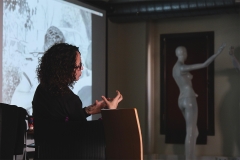
"Working with Found Footage" Workshop Organized with Zeyno Pekünlü
Artist, director, activist and academician Zeyno Pekünlü was the guest of CDM232: Digital Film Studio II.
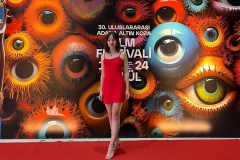
CDM senior year student Ecem has been selected to the Animation category at Adana Altın Koza Film Festival
CDM 4th-grade student Ecem Çörtle has been selected as a finalist in the National Student Films category of the 30th International Adana
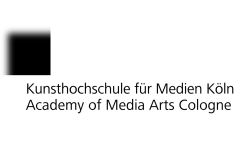
CDM graduate Eylül Berivan Kızılırmak has been accepted to the Cologne Academy of Media Arts
CDM graduate Eylül Berivan Kızılırmak has been accepted to the master's program at the Academy of Media Arts Cologne (Kunsthochschule für Medien Köln).
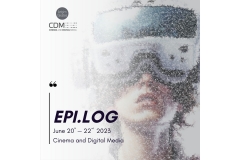
Traditionalistic CDM End of Year Exhibition EPI.LOG took place in FC Studios
Cinema and Digital Media End of Year Exhibition EPI.LOG 2023, organized as part of IUE Faculty of Communication Exhibition "FC-EX 2023", was
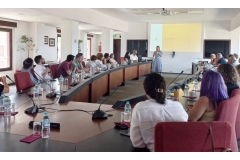
IUE Faculty of Communication Advisory Board members visited our Faculty and Studios on June 22, 2023
IUE Faculty of Communication Advisory Board members Andreas Treske, Ayşe Matay, Barbaros Görgü, Dilek Gappi, Elif Demirci İşleğen, Emine Uysal Berger, Murat
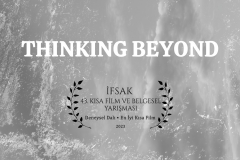
Ataberk awarded at the İFSAK 43rd National Short Film and Documentary Competition
Our third-year student, Ataberk Eyolcu, returned from the 43rd National Short Film and Documentary Competition of İFSAK (Istanbul Photography and Cinema Amateurs
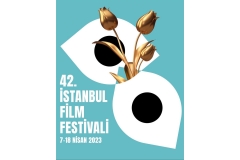
Our third-year CDM student Fikret Başar Kaya was at the 42nd Istanbul Film Festival
Our third year CDM student Fikret Başar Kaya participated as a Young Jury at the 42nd Istanbul Film Festival held on April
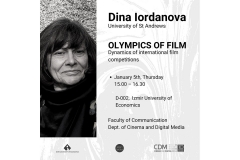
CDM hosted Dina Iordanova
Prof. Dina Iordanova gave a speech titled Olympics of Film: Dynamics of international film competitions on Thursday, January 5, 2023, in D002 at Izmir

